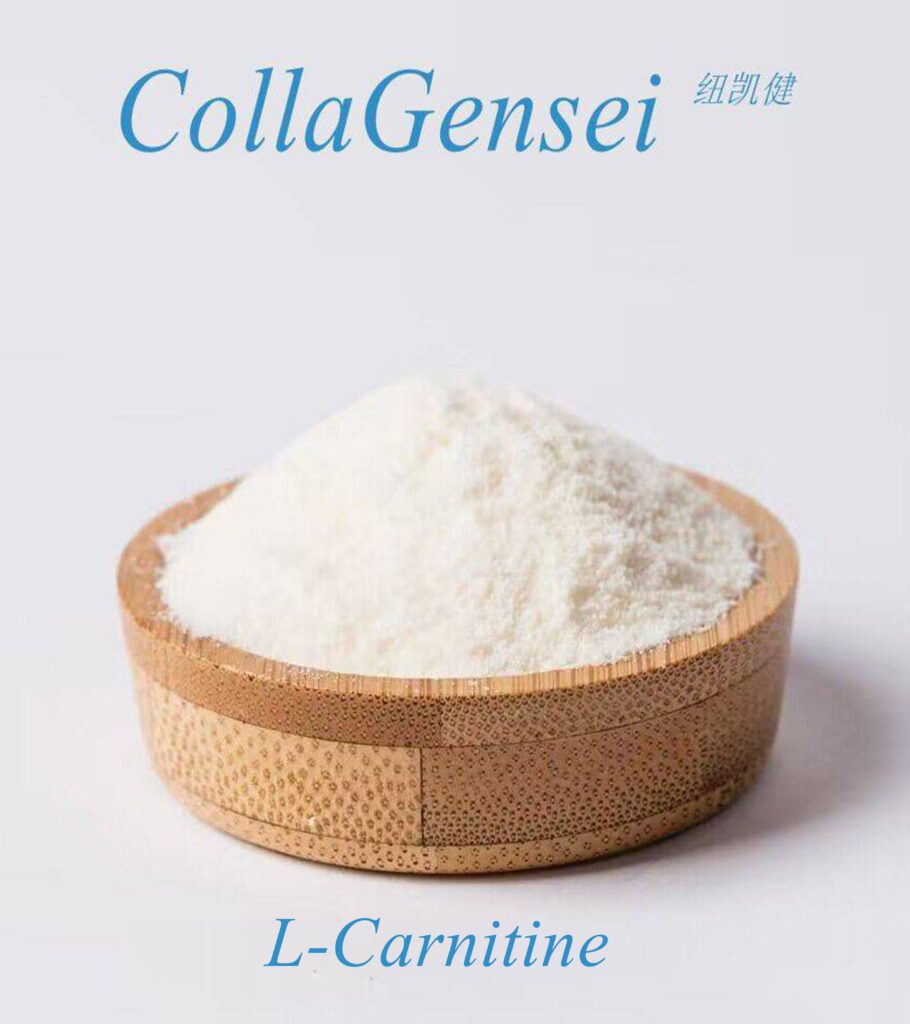Introduction
Berberine HCL is a bioactive compound extracted from various plants, including barberry, goldenseal, and Oregon grape. It has been used in traditional Chinese and Ayurvedic medicine for centuries, known for its potent therapeutic effects. Recent scientific research has shed light on its numerous health benefits, particularly in managing metabolic conditions and promoting overall wellness. This article explores the mechanisms, health benefits, applications, and potential side effects of Berberine HCL.
What is Berberine HCL?
Berberine HCL (hydrochloride) is a form of Berberine, an alkaloid compound used in traditional medicine for its antibacterial, anti-inflammatory, and anti-diabetic properties. Berberine HCL is recognized for its higher bioavailability and better absorption in the body than other berberine forms.
Berberine of Action
AMPK Activation: Berberine activates AMP-activated protein kinase (AMPK), an enzyme crucial to cellular energy homeostasis. AMPK activation enhances glucose uptake, fatty acid oxidation, and mitochondrial function, promoting energy balance and metabolic health.
Modulation of Gut Microbiota: Berberine positively affects gut microbiota composition, promoting the growth of beneficial bacteria and inhibiting harmful ones. This modulation helps improve metabolic functions and supports gut health.
Inhibition of Enzymes: Berberine inhibits various enzymes involved in carbohydrate and lipid metabolism, such as alpha-glucosidase and lipase, reducing glucose absorption and lipid levels.
Antioxidant and Anti-inflammatory Effects: Berberine exhibits potent antioxidant and anti-inflammatory properties, protecting cells from oxidative stress and reducing inflammation.
Health Benefits
- Diabetes Management
One of the most well-documented benefits of Berberine HCL is its effectiveness in managing type 2 diabetes.
Blood Sugar Control: Berberine significantly lowers blood glucose levels by enhancing insulin sensitivity and increasing cell glucose uptake. It also decreases glucose production in the liver.
Improved HbA1c Levels: Studies have shown that Berberine glycated hemoglobin (HbA1c) levels are a marker of long-term blood sugar control, making it a valuable supplement for diabetes management.
Reduction of Insulin Resistance: By activating AMPK, Berberine improves insulin sensitivity, reducing insulin resistance, a common issue in type 2 diabetes.
- Weight Loss and Metabolic Health
Berberine HCL is beneficial for weight management and improving overall metabolic health.
Weight Loss: Berberine helps reduce body weight and body mass index (BMI) by enhancing fat metabolism and suppressing appetite.
Reduction of Lipids: Berberine lowers cholesterol levels, including LDL (bad) cholesterol and triglycerides, while increasing HDL (good) cholesterol. This lipid-modifying effect helps reduce the risk of cardiovascular diseases.
Enhanced Fat Oxidation: By activating AMPK, Berberine promotes fatty acid oxidation, reducing fat accumulation in the body.
- Cardiovascular Health
Berberine HCL supports cardiovascular health by improving various risk factors associated with heart disease.
Blood Pressure Regulation: Berberine helps lower blood pressure by improving endothelial function and reducing oxidative stress.
Cholesterol Management: Berberine’s ability to lower LDL cholesterol and triglycerides while increasing HDL cholesterol helps protect against atherosclerosis and other cardiovascular diseases.
Anti-inflammatory Effects: Berberine reduces inflammation in blood vessels, improving their function and reducing the risk of cardiovascular conditions.
- Gut Health
Berberine HCL positively influences gut health by modulating the gut microbiota and supporting digestive functions.
Gut Microbiota Balance: Berberine promotes the growth of beneficial gut bacteria, such as Bifidobacterium and Lactobacillus, while inhibiting pathogenic bacteria like E. coli and Salmonella.
Anti-inflammatory Effects: Berberine reduces inflammation in the gut, helping manage conditions like inflammatory bowel disease (IBD) and irritable bowel syndrome (IBS).
Improved Digestion: By enhancing gut microbiota balance and reducing inflammation, Berberine has better digestion and nutrient absorption.
- Antimicrobial and Antiviral Properties
Berberine HCL has potent antimicrobial and antiviral effects, making it useful for various infections.
Bacterial Infections: Berberine is effective against many bacteria, including Staphylococcus aureus, E. coli, and Helicobacter pylori. It disrupts bacterial cell walls and inhibits their growth.
Viral Infections: Berberine has shown antiviral activity against viruses such as influenza, herpes simplex, and hepatitis B. It inhibits viral replication and enhances the immune response.
Fungal Infections: Berberine exhibits antifungal properties, helping manage infections caused by Candida and other fungi.
- Anti-inflammatory and Antioxidant Effects
Berberine HCL’s anti-inflammatory and antioxidant properties contribute to its health benefits.
Chronic Inflammation: Berberine reduces the production of pro-inflammatory cytokines, helping manage chronic inflammatory conditions such as rheumatoid arthritis and inflammatory bowel disease.
Oxidative Stress Reduction: By neutralizing free radicals and enhancing antioxidant defenses, Berberine Berberinecells from oxidative damage, slowing aging and reducing the risk of chronic diseases.
- Potential Anti-Cancer Effects
Emerging research suggests that Berberine HCL may have anti-cancer properties.
Inhibition of Cancer Cell Growth: Berberine inhibits the growth and proliferation of various cancer cell lines, including breast, lung, and colon cancer.
Induction of Apoptosis: Berberine induces apoptosis (programmed cell death) in cancer cells, preventing their spread and reducing tumor growth.
Anti-metastatic Effects: Berberine inhibits metastasis by reducing the ability of cancer cells to invade and migrate.
Uses of Berberine HCL
- Dietary Supplements
Berberine HCL is widely available as a dietary supplement, including capsules, tablets, and powders. It is commonly used to:
Support General Health: Berberine supplements enhance metabolic health, support cardiovascular health, and promote overall well-being.
Manage Specific Conditions: Berberine manages conditions such as type 2 diabetes, obesity, cardiovascular diseases, and gut health issues.
- Functional Foods and Beverages
Berberine HCL is sometimes added to functional foods and beverages to enhance their nutritional value.
Fortified Foods: Foods such as energy bars and drinks may be fortified with Berberine Berberine for additional health benefits.
Health Beverages: Berberine is included in health drinks designed to support metabolic health and overall wellness.
- Traditional Medicine
Berberine has a long history of use in traditional Chinese and Ayurvedic medicine to treat various ailments.
Digestive Issues: Berberine is traditionally used to treat digestive issues such as diarrhea, dysentery, and stomach infections.
Infections: Berberine’s antimicrobial properties effectively treat bacterial, viral, and fungal infections.
Inflammatory Conditions: Berberine manages inflammatory conditions like arthritis and skin disorders.
Potential Side Effects and Considerations
Berberine HCL is generally considered safe when taken at recommended dosages. However, some individuals may experience mild side effects, including:
Gastrointestinal Issues: Nausea, stomach upset, and diarrhea can occur, especially at high doses.
Interactions with Medications: Berberine may interact with certain medications, such as anticoagulants and blood pressure medications. It is essential to consult with a healthcare provider before starting Berberine supplementation, especially if you are taking other medications.
Pregnancy and Breastfeeding: The safety of Berberine Berberineegnancy and breastfeeding has not been well studied. It is advisable to avoid Berberine supplements during these periods unless recommended by a healthcare provider.
Dosage and Administration
The optimal dosage of Berberine HCL can vary depending on the intended use and individual health status. General guidelines include:
General Health: 500-1,500 mg per day are common for general health and wellness, divided into 2-3 doses.
Diabetes Management: Higher doses, such as 1,000-2,000 mg daily, are often used to manage blood sugar levels and improve insulin sensitivity.
Weight Loss: Doses of 500-1,500 mg per day may be used to support weight loss and improve metabolic health.
Cardiovascular Health: Doses of 500-1,500 mg per day can help manage cholesterol levels and support heart health.
It is essential to start with a lower dose and gradually increase it, monitoring for adverse effects. Before beginning Berberine supplementation, consulting with a healthcare provider is recommended, especially for individuals with existing health conditions or those taking other medications.
Environmental and Ethical Considerations
Berberine is extracted from natural plant sources, raising sustainability and environmental impact considerations.
Sustainability: Sustainable sourcing practices are essential to ensure berberine-rich plants’ long-term availability and protect ecosystems.
Purity and Quality: Ensuring high purity and quality of Berberine supplements involves careful extraction and processing methods, avoiding contaminants, and preserving bioactive compounds.
Conclusion
Berberine HCL is a versatile and powerful compound with numerous.




